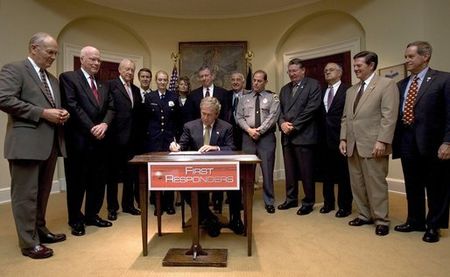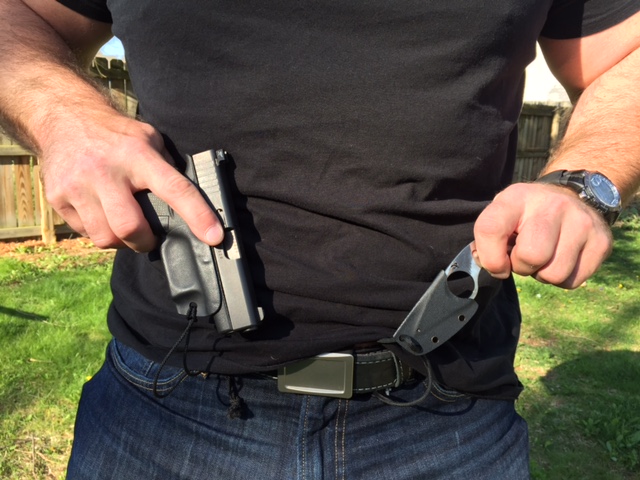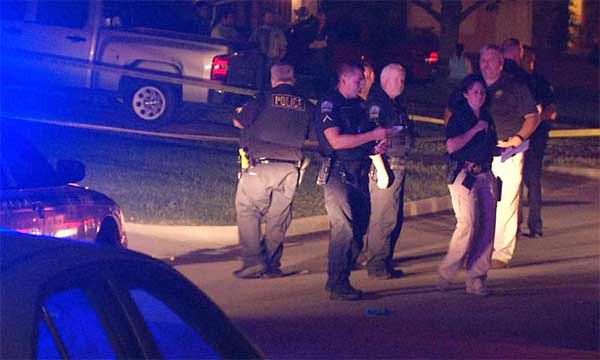Written by: Greg Ellifritz
I posted on Facebook the fact that during last week’s horrific Borderland Bar shooting in California there were at least six unarmed off duty police officers in the crowd. Presumably, had those officers been carrying their weapons, the tragedy would have resulted in a much smaller number of victims.
That statement led to lots of questions from my friends. Who was to blame? Did the venue ban guns? Were the cops just complacent and unwilling to carry while off duty? Were the cops not carrying because they were drinking alcohol?
I don’t know the answers to all of those questions, but it’s a topic we need to think deeply about if we want to stop active killer attacks in the future.
We have two primary issues at stake. The first is “Can the cops carry in a bar?”
The LEOSA act covers both on duty and off duty police officers (as well as retired officers in an honorable status) in the United States. Theoretically, under this Federal law, all cops have the right to carry a gun almost anywhere in the USA so long as they meet a few criteria (having arrest powers, having shot a qualification course in the last year, etc).

President Bush signing the LEOSA Act.
One of the few restrictions on this right is that cops are not allowed to carry guns into a business establishment that posts a “no guns allowed” sign. So, if this was a posted venue, the cops may not have been legal to carry.
The issue with this is the fact that many state laws don’t identify the difference between an on-duty and an off-duty police officer. In those states, a cop is a cop, regardless of whether he is working or off duty. States without a distinction between the two sometimes have state legislation or an attorney general opinion allowing those officers to ignore the “no guns allowed” signs in their home states.
I’m not sure how California views off duty cops. They may have been legally barred from carry in the event or they may have had legislative authorization.
If the cops were not allowed to legally ignore the “no guns” signs, what are the penalties for getting caught with a gun at such a location? Every state is different. In many states there isn’t much (if any) teeth to the law prohibiting off duty cops or CCW licensees from carrying in a posted private business. In a lot of states, carrying a gun into a private posted business is considered trespassing. In some states, businesses aren’t even allowed to file charges against the gun carrier unless he or she was ordered to leave the premises and is refusing. Some states consider it a civil issue and don’t even have any criminal penalties.
A cop isn’t likely to get arrested if they get caught with a gun in a posted venue. The worst thing that may happen is that if they are caught at the door, the security staff will tell the cop to take the gun back to his car.
It’s always been my attitude that, if there aren’t any consequences for getting caught, I might as well try to get my gun into a venue even if it is posted. In all likelihood, the worst thing that would happen is that I get denied entry into the event. I’m willing to take that chance in order to better defend myself and my family from an active killer.
There are ways to defeat metal detectors and pat downs. I wrote a very comprehensive article on the topic.

The bottom line is that if the cop really wanted to carry his gun, he can get it into most locations without any risk of prosecution even if guns aren’t allowed. If the cop is worried about carrying a gun, he could also smuggle a blade, pepper spray, or an impact weapon past security. In most states, carrying a pocket knife past security isn’t a violation at all, assuming the knife isn’t classified as a weapon. There are also ceramic and plastic blades that go right through metal detectors.
What good is a blade against a shooter armed with a Glock .45?
Well, in the California shooting, the killer stopped shooting during the attack to post updates on Facebook and Instagram. While the killer had his head down in his phone, a prepared cop may have been able to cut his throat or disarm him with a reasonably sized folding knife.
The second issue that came up is “Can a cop carry a gun if he’s been drinking?” That is a thornier topic. Unlike state concealed carry laws (that may specifically ban a CCW licensee from drinking in public while armed) the cops are governed by the Federal LEOSA legal standards.
Those standards state that the cop can carry so long as he “is not under the influence of alcohol or another intoxicating or hallucinatory drug or substance.”
Although I ‘m not aware of any real case law testing this restriction, most folks consider “under the influence” to be the same legal standard as is used in drunk driving cases. Assuming the cop is under a .08 blood alcohol concentration, he would not generally be considered “under the influence.”
So, on its face, the law doesn’t seem to prohibit cops from carrying after having a couple beers/drinks.
Whether it is a good idea to carry after drinking is a different question. If a cop shoots someone after he has consumed some alcohol, he will have an additional hurdle to overcome in the event he is criminally charged or sued. Some cops will righteously refuse to carry when drinking because they don’t want the issue to be brought up in court should they have to shoot someone.
In general, the “Doctrine of Competing Harms” comes into play in this situation. That doctrine essentially states that sometimes a person has to choose between two bad decisions. In that situation, a reasonable person would be expected to choose the “least bad” of the options. It’s essentially choosing the lesser of two evils.
Firing your gun when drunk is bad, but allowing a madman to kill 12 innocent victims is worse. Therefore under this doctrine, a reasonable person might be forgiven for shooting a gun while drunk if he does so in order to save the lives of a whole bunch of innocent people. Check your state law to see if the “Doctrine of Competing Harms” is an accepted legal standard.
I won’t presume to tell anyone what they should do. A lot of these decisions come down to the issue of an individual’s personality and the amount of alcohol he plans on ingesting. If you are the kind of person who becomes a “mean drunk” and picks fights when inebriated, you definitely shouldn’t be carrying a gun if you are drinking. Likewise, if you plan on getting absolutely hammered, you should also leave the gun at home.
What about if you only plan on drinking a couple beers? That’s your decision to make. Personally, I don’t ever get blasted drunk in public here in the USA where I would be carrying a gun. I’m also a “happy drunk.” The more I drink, the more agreeable I become. I regularly carry my gun when I plan on drinking a couple beers over the course of the evening. For a 240 lb. male, it takes significantly more alcohol than that to be considered legally “under the influence.”
I’m willing to take the chance of a legal challenge in the event I have to shoot someone in an active killer attack after having consumed a couple of alcoholic beverages. It won’t be fun, but in my mind it’s a better option than seeing my friends or family killed by a spree shooter. Your mileage may vary.
Perhaps the best solution for the problem is to implement Massad Ayoob’s idea of a “designated defender.” One of your friends stays sober and armed in order to defend the rest of the group. If you have the ability to work out such an arrangement, I would urge you to do so.
I would also urge you to think about this issue in advance. I would really hate to be one of those six unarmed officers who were unable to save the lives of countless innocent people in the California attack. I’m going to make sure that I never have to experience such grief and regret.


